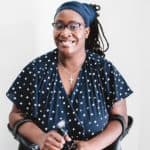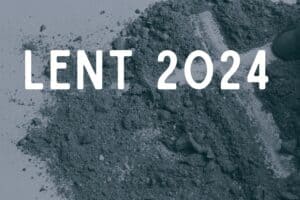
A Public Confession: You were made out of soil, and you will once again turn into soil.
-Genesis 3:19b (CEB)
The Lenten season is a good time for confession. It’s a good season to tell the truth about ourselves. I would like to make a public confession. Those of you who will listen to it will serve as my priest. Thank you in advance. The words that I will speak will reverberate in your ears. This is consecrated space that we create together for me to be honest and vulnerable. So, here goes: I hope you have open hearts and hands to receive it.
O God, Father and Mother to us all, I confess that I have astigmatism in both eyes. I confess that it is difficult for me to stand up straight, that I lean forward as I walk and that my butt protrudes out more than perhaps it should. I confess that I cannot straighten my legs because my muscles are too tight and my body too stiff. And yes, O God, this includes my toes too. I confess that both my feet turn outward at an angle (out-toeing), and I absolutely cannot stand still without assistance. One last thing God, I confess that I am a spaz; that’s right, there are times when my body makes uncontrollable movements. Medical doctors have examined all my sins and have given them–me–a fancy diagnosis. Cerebral Palsy. Let me answer the question you may be too polite to ask before I continue with my confession. Yes, I was born this way. While I am being honest, let me also say that the older I get, the stronger my internal ableism gets. If I am not careful, it is harder for me to like my body, let alone, love it. It feels good to tell the truth about myself aloud. I think I may engage in this customary Lenten practice in the future.
My words are raw. You may be tempted to break the awkward silence. Do not. Not yet. Do not rush to offer me absolution. Not until your own ableism is acknowledged. Whether your body is abled or (dis)abled like mine, you cannot offer me what you have not yet received yourself. After you have acknowledged your own ableism and are engaging in the hard work of becoming an anti-ableist, the deeper work of acknowledging and eradicating structural ableism must be done.
Before you pronounce that disabled bodies–my disabled body–are not a sin, perhaps it’s time for you to exegete and confess your theology around disability. Conduct an accessibility assessment of your church’s building and programs and be proactive about welcoming into all your spaces those with disabilities; in particular, welcome them into the life of your congregations by hiring/extending a call to ministers with disabilities. Do an inventory of your verbal and written language. While you are doing that, ask yourself the following questions: What do my words communicate about my beliefs about people with disabilities? How are people with disabilities depicted in the sermons and in the songs that my congregation sings? In what ways are people with disabilities a part of the Liturgy of the Church, your church? In what ways have you left us out? Now that you are aware, what are you going to practically do about it? This kind of confession that is awakened is ongoing, and it is long, hard work. It may take the whole 40-day Lenten journey; or more realistically, it may take a lifetime.
Although it is true that the church lobbied to continue to oppress disabled bodies after the passage of the Americans with Disabilities Act and continues to engage in the systemic oppression of disabled bodies nearly 32 years later, being anti-ableist, just like being “anti-racist”(Ibram Kendi’s term), is not the church’s work alone. We must be willing to evaluate the whole of our society and root out ableism wherever we find it. In the educational system, in the job market, in health care, media, television, and on dating apps, where disabled bodies often get swiped left without a second thought. The ableist idea that my disabled body is a sin is part of the very foundation of society. And that is a sin that needs the Spirit’s deeper work to awaken us to and then enable us to do the long and hard work of being “anti-ableist” in the Church for the life of the world.
There is hope! The Lenten season offers (dis)abled and abled bodies alike a path toward absolution, by living into the truth of the last 14 words found in the latter half of Genesis 3:19—“You were made out of soil, and you will once again turn into soil.” The imposition of ashes on Ash Wednesday is just the beginning of the Lenten journey. The 40-day Lenten journey is an invitation to begin to practice the truth of those words. The more I believe and live into the truth of those words, the more I will grow in awe of my disabled body and the less it will frustrate me. After all, “my body is not an apology!” (Sonya Renee Taylor).
It is in this body made of soil that I experience the world. Both the chronic pain and the way my whole body is engaged when I laugh are a testament that my body experiences the full range of human emotion. My thick glasses help my eyes to see what my mind already perceives; the world is full of horror, but it also bursting with beauty. My legs assisted by my crutches make a rhythmic sound that announces my presence even before I enter the room. And my bent knees and angled feet set a slow pace for me that enables me to engage in conversations and enjoy the kindness of strangers. This body that comes from soil and is diagnosed with a disability is the way through which I am in relationship with God, with people, and with creation. The body I inhabit is what makes me human, because that is where God lives. Yes, the disabled body is human—crutches, leg braces, communication boards, white canes, wheelchairs, walkers, and all other assistive devices included. The shared experience of being human is where disabled and abled bodies can offer solidarity to one another.
To remember that humans “were made out of soil, and we will once again turn into soil” is to make space for both the fragility of abled and disabled bodies. And it invites all to befriend our mortality. We will all die. It will not matter whose bodies are abled or disabled. All our bodies will provide nutrients for the earth.
Perhaps this Lenten journey is an invitation to love God who made our bodies out of soil and gives our bodies back to Mother Earth—God’s very Body. It is an invitation to love the disabled bodies of our neighbors. The Lenten journey is also an invitation to love our own bodies, abled or disabled. All of what was written and now being written in the law and the prophets proclaims the truth of God’s two commands.
The truth is Ash Wednesday is just the beginning of our Lenten pilgrimage. On that day, we have imposed on our bodies the sign of the cross to visibly mark our mutual journey toward the eradication of ableism in whatever form it takes. The words of absolution are for me and for you, the disabled and the able-bodied.
May almighty God have mercy on us and, having forgiven our sins, lead us to eternal life. May the almighty and merciful Lord grant us absolution, and remission of the sin of ableism in all its forms. Send us out into the world awakened to anti-ableism for the life of the world. Amen.
Rev. Dr. Letiah Fraser is a New York City Native who now lives in Kansas City. She is an ordained pastor, an activist/organizer connected with the KS Poor People’s Campaign and A National Call for Moral Revival; she is a disability rights advocate, and a hospital chaplain. Rev. Dr. Letiah Fraser received her B.S. in Adolescent Education and English from Nyack College in New York. She received her Masters of Divinity from Nazarene Theological Seminary in Kansas City where she also completed her Doctorate of Ministry. Her focus is on spiritual formation and disability theology. She enjoys traveling and participating in new adventures. She is passionate about the intersections of faith, race and disability. She identifies as a proud African American, becoming Christian woman who lives with a physical disability. She is a daughter, sibling, friend, and new plant-mom, who desires to be a writer, teacher, preacher, and professor.
 This is excerpted from Disabling Lent: An Anti-Ableist Lenten Devotional, produced by Unbound, an interactive journal on Christian social justice, a ministry of the Presbyterian Church USA, where it originally appeared and is reproduced here by kind permission of the Unbound editor.
This is excerpted from Disabling Lent: An Anti-Ableist Lenten Devotional, produced by Unbound, an interactive journal on Christian social justice, a ministry of the Presbyterian Church USA, where it originally appeared and is reproduced here by kind permission of the Unbound editor.


